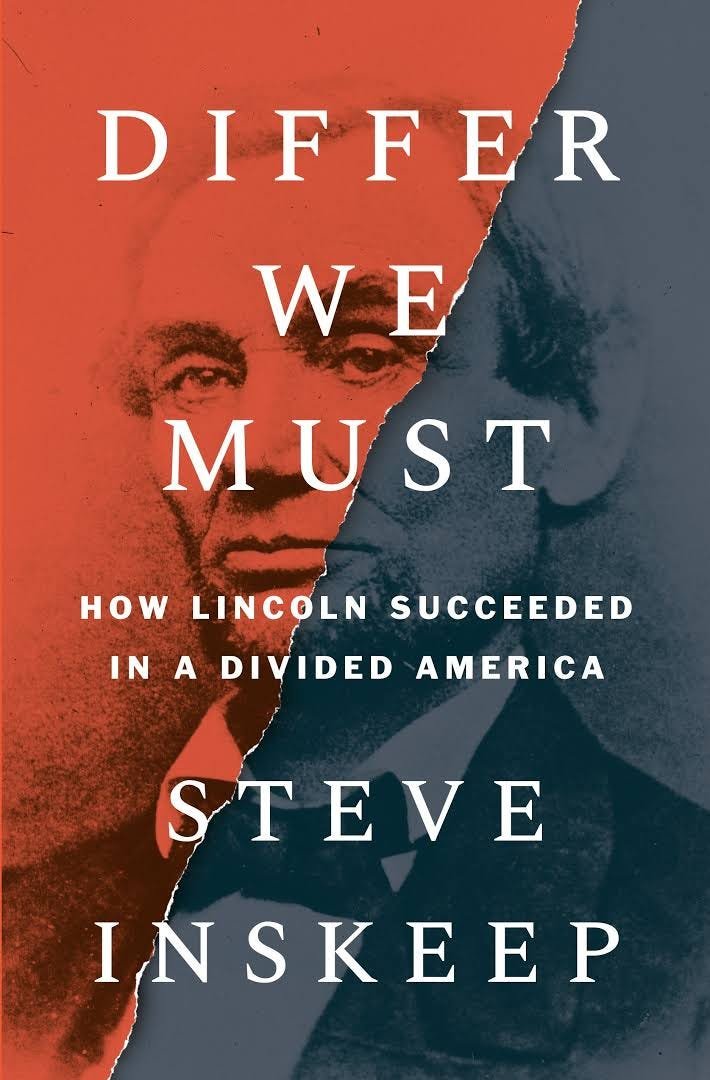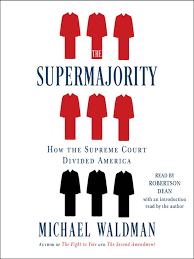A Historic Week and How to Talk About It
June 2023 Imperfect Union
I toyed around with some other subjects for this month’s newsletter, but it seemed impossible to ignore the historic events of the last week. I know lots of us have Trump fatigue and perhaps even news fatigue from the last few days, but it would be a mistake to become numb to the unprecedented nature of the current moment. Nonetheless, I want to provide value and not just add to the noise, so I thought it might be helpful to share the most commonly asked questions I get from press and media. Let me know if you have any additional questions in the chat or comments below and I’ll do my best to answer!
1. Has anything like this happened before?
Perhaps it goes without saying, but this whole scenario is unprecedented (yes, I know that word has lost some of its meaning). No former president has ever been indicted on federal charges—let alone under the Espionage Act.
And that’s not because we’ve had an unwritten rule that prosecutors don’t charge former presidents. Instead, we’ve been pretty lucky that former presidents have mostly followed the law. As Ben Wittes said on a podcast, Harry Truman, Ronald Reagan, or Jimmy Carter weren’t on crazy crime sprees after leaving office that the Department of Justice conveniently overlooked. Instead, no charge have been brought because there is no evidence former presidents committed crimes. As a country, we’ve been pretty lucky then that the people we elected to the highest office were mostly law-abiding citizens. Which is not to say they were perfect or did everything right, but instead at least kept themselves within certain boundaries and expectations.
2. Have candidates run from jail?
Yes! No candidate from one of the two major political parties has run from jail, but there is some historical precedent. In 1798, Matthew Lyon, a congressman from Vermont, was convicted of sedition. He ran for reelection from jail and won.
In 1920, Eugene Debs ran from prison as the Socialist Party candidate (he had run in several elections before as well). In September 1918, Debs was convicted of sedition for encouraging resistance to the draft during World War I. In the 1920 election, he received 3.4% of the total votes cast.
Image from Library of Congress
3. Can the president be elected if he’s been convicted of a crime?
The honest answer is we don’t really know. Article II of the Constitution is silent on the subject, only requiring the president be 35 years of age, born in the United States, and a resident in the U.S. for 14 years.
Section b of 18 U.S. Code § 2071 states that anyone convicted under the Espionage Act “shall forfeit his office and be disqualified from holding any office under the United States.”
Former President Trump has been charged under the Espionage Act, but it’s unclear if the law would automatically apply should he be convicted. If he wins the Republican Party nomination, it’s possible lawsuits would be filed to bar him from the ballot using these terms, but the outcome is far from certain. Either way, it would probably be challenged in court and we just really don’t know.
4. How is this different from the Hillary Clinton case?
This case is different in a couple of ways. First, Clinton was accused of storing the documents on an unsafe server while secretary of state. The allegations did not apply to her time after leaving office.
Second, then-FBI Director James Comey declared, “no evidence that any of the additional work-related e-mails were intentionally deleted in an effort to conceal them.”
Third, while Comey concluded that Secretary Clinton was careless with her handling of classified information, there was no evidence she “intended to violate laws governing the handling of classified information.”
After an extensive investigation, Comey stated that it was the FBI’s “judgment is that no reasonable prosecutor would bring such a case.” He went on to say that there was no prior case that would support “bringing criminal charges on these facts.” All previous cases require a combination of “clearly intentional and willful mishandling of classified information; or vast quantities of materials exposed in such a way as to support an inference of intentional misconduct; or indications of disloyalty to the United States; or efforts to obstruct justice.”
Keep in mind, James Comey is a Republican and has acknowledged that his announcement of this investigation may have contributed to Clinton’s loss in the 2016 election.
This conclusion is not all that different from the one made by the special prosecutor overseeing the investigation of classified documents held by Mike Pence. Should he have had them? No. Did he intend to take them and keep them for his own personal use? No. When they were discovered or their return requested, he complied immediately.
On the other hand, according to the indictment, Trump allegedly played a personal role deciding which documents to keep, intentionally kept them in unsafe spaces, refused to give them back once their absence was noted, participated in the obstruction to prevent their return, and encouraged his colleagues and lawyers to lie to the FBI. Of course, innocent until proven guilty. But if the evidence stands as charged, then the circumstances are very different.
5. How is this different from the Bill Clinton case?
The Presidential Records Act (PRA) establishes public ownership of all presidential records under the custody of the National Archives. Presidential records are defined as any document, recording, digital file, or archival material created in the course of governing.
The PRA carves an exception for personal records, such as written diaries or journals, which were not prepared or utilized for government business. These items remain the private property of the president or vice president. Most presidents and vice presidents keep some form of diary during their time in office.
While president, Bill Clinton kept audio recordings as a vocal diary, which he stored in his bedside table. In 2012, Judicial Watch (a right-wing non-profit) brought a case against the National Archives, alleging Clinton had improperly retained these recordings and they belonged to the American people. A judge found that the recordings were in fact personal and Clinton had created them to help jog his memory later when writing an autobiography. He was permitted to keep the tapes.
The indictment against Trump alleges that he retained war plans, information about other country’s nuclear capabilities, top-secret maps, and more. These are governing documents, not diaries or journals.
6. Why can’t he just give the documents back?
He was given the opportunity to do so. Because of the extensive classification system and the sheer number of documents produced during an administration, the National Archives (NARA) expects that certain documents might slip through the cracks. If they find something missing, they will request its return. If the person in question returns the documents, then essentially, it’s a get out of jail free card.
NARA requested Trump return the missing classified documents and negotiated over their return for months. Only after it was clear that Trump wouldn’t return them or was lying about their location (because they were still missing), did law enforcement get involved. This part of the story gets overlooked sometimes but is really important.
7. How does this compare to other countries? Will we be a banana republic?
I am planning to write a separate piece about this question at some point with a lot more detail, but there is an important distinction between the prosecution of political actors and a banana republic. What characterizes a banana republic is the persecution of political rivals with no evidence or manufactured evidence of crimes or wrongdoing. Prosecuting crimes committed by someone who happens to be a political actor does not necessarily make the republic illegitimate. Biden did not prosecute Trump because he is a rival, a jury of Floridians indicted Trump when presented with compelling evidence by an independent special prosecutor.
In fact, I would argue that it would be worse for a republic to ignore evidence of criminal activity just because someone was a political candidate or a former president. That would establish a loophole in the legal system that former presidents are above the law. In a republic—a nation of laws, not men—no one is above the law. It’s important to give that statement meaning.
Accordingly, other democratic governments across the world, meaning countries with some form of democratic representation, even if it doesn’t look exactly like ours (France, Britain, Israel, etc.) have prosecuted former leaders for crimes. It doesn’t destroy their system; it ensures that rot from within doesn’t become pervasive.
That doesn’t mean one should necessarily be happy about the events of the last week. It is ok to be both sad for the country that we are here and also be glad the law is upheld.
Hope these answers help, please do pop any questions you have below, and I’ll do my best to answer.
Books:
Currently Reading: The Supermajority by Michael Waldman. Still on a Supreme Court kick.
Up Next: First Family by Cassandra Good. I’ll be moderating a conversation with Cassie for the National Archives in July, so I’ll be reading this before then!
Coming Soon (ish): Differ We Must: How Lincoln Succeeded in a Divided America by Steve Inskeep, out October 3, 2023.
On the Horizon: Mischievous Creatures: The Forgotten Sisters Who Transformed Early American Science by Catherine McNeur, out October 31, 2023.






